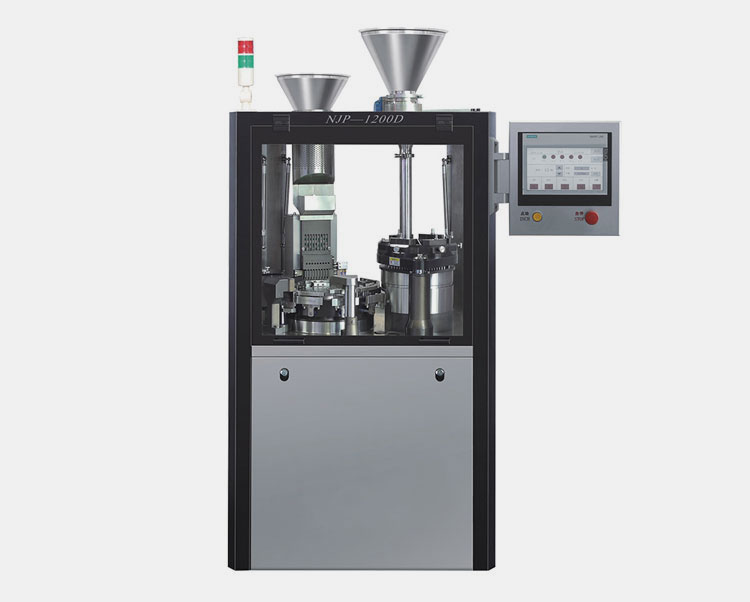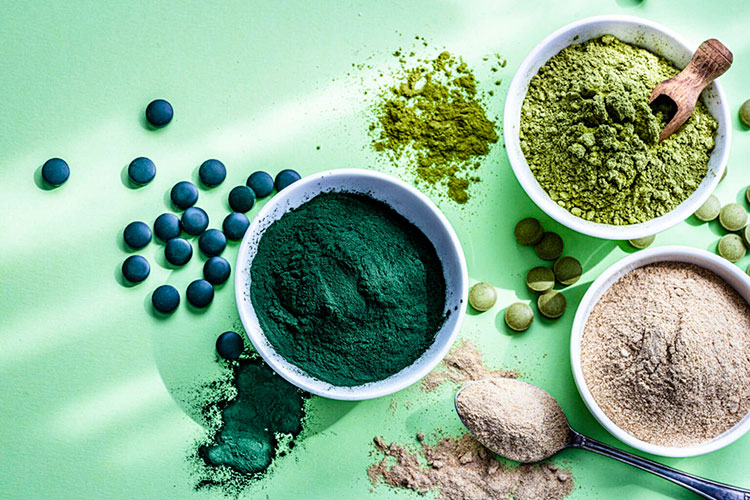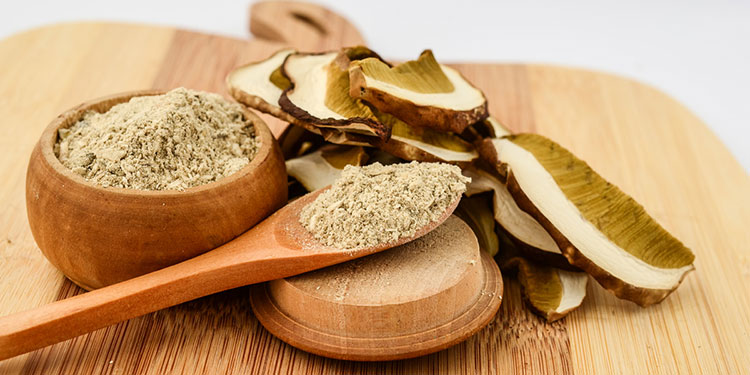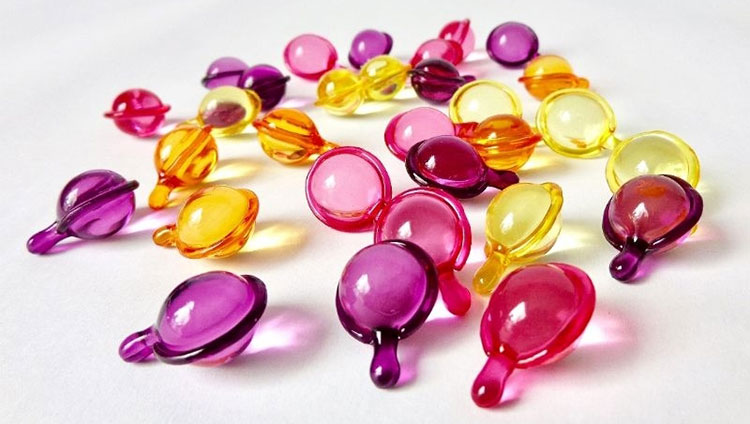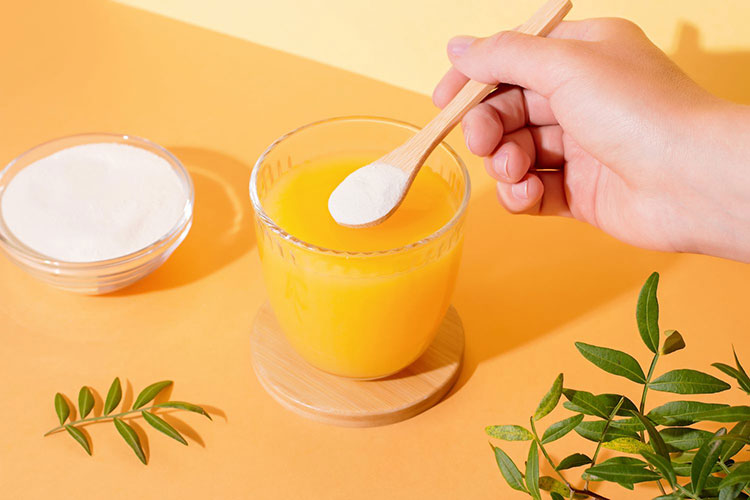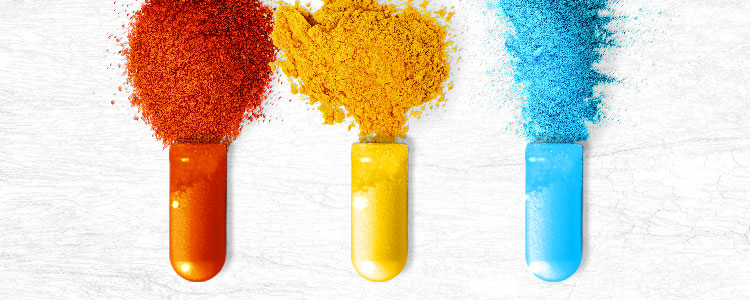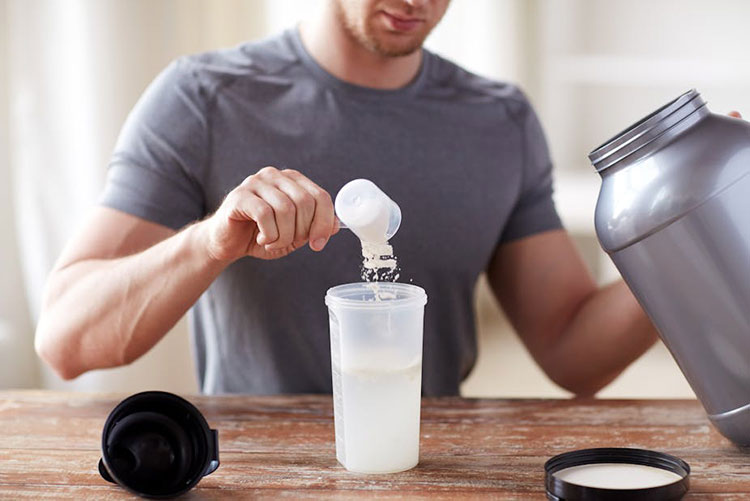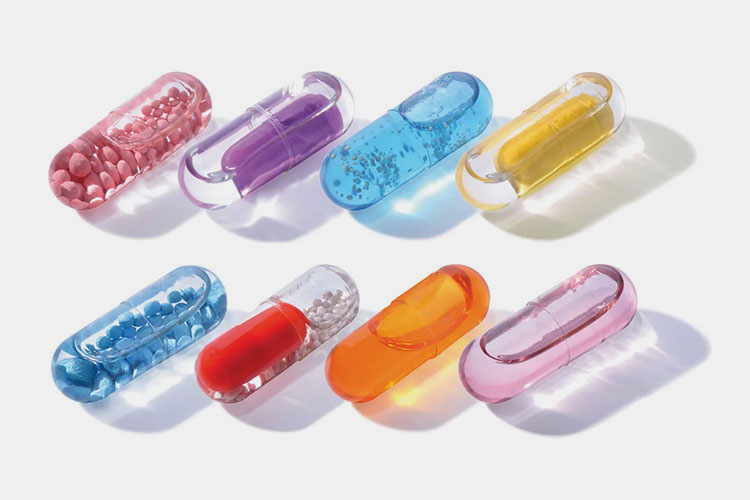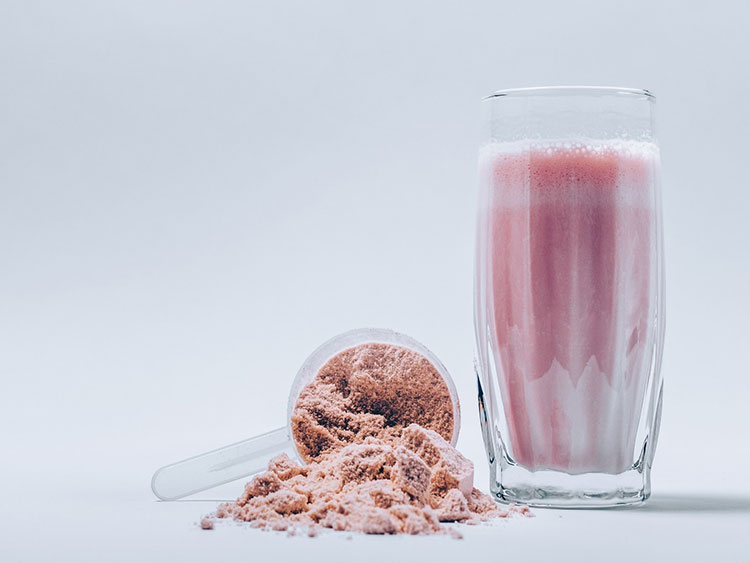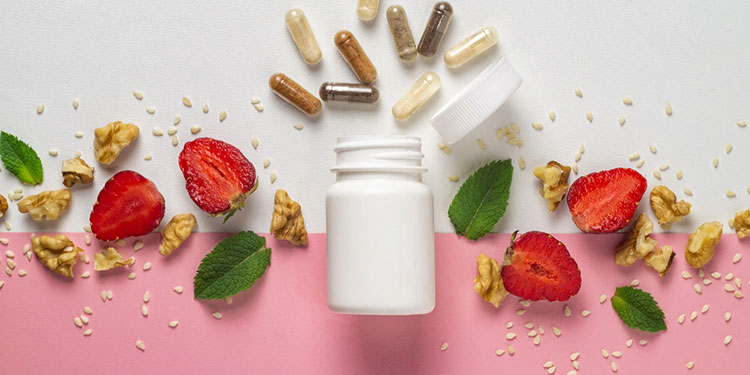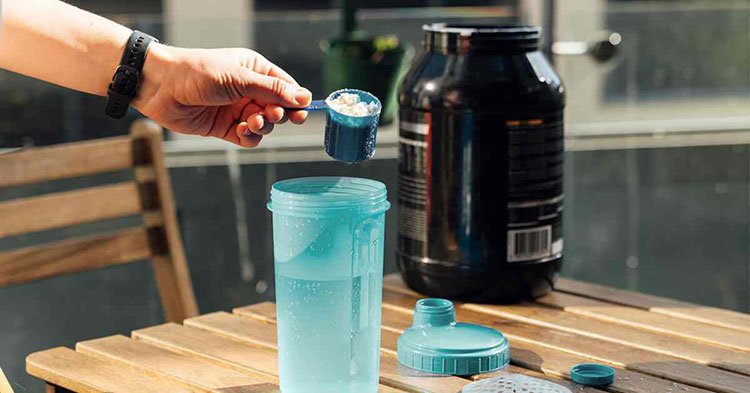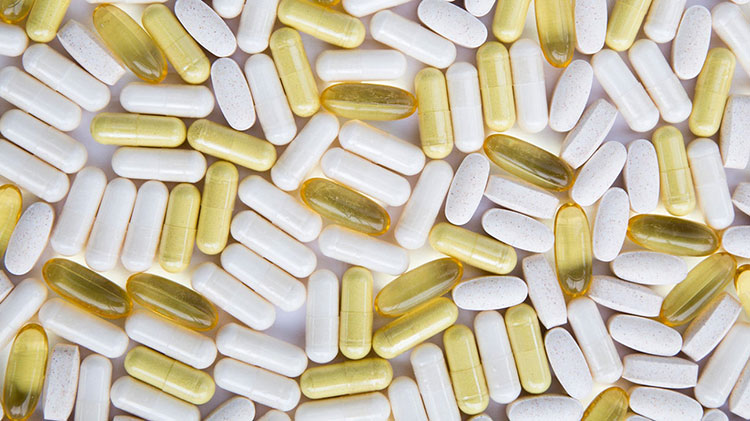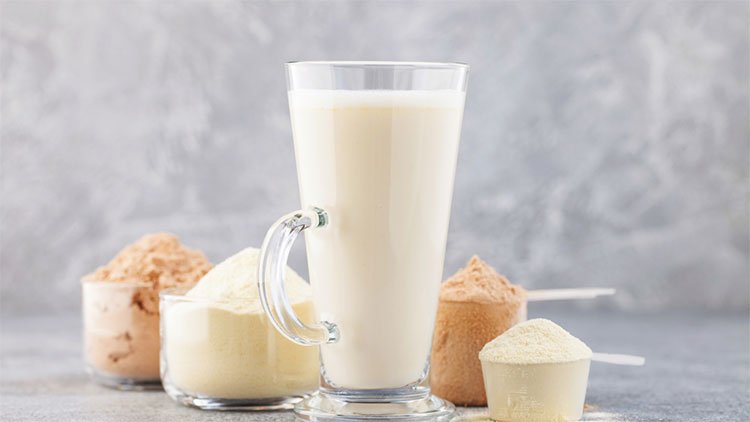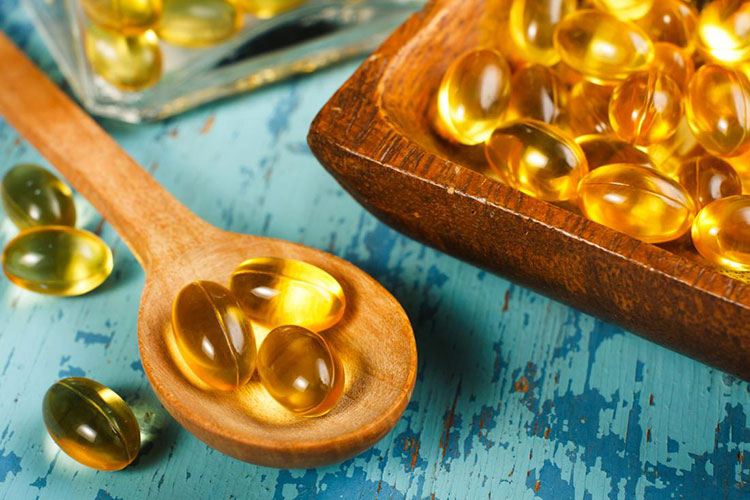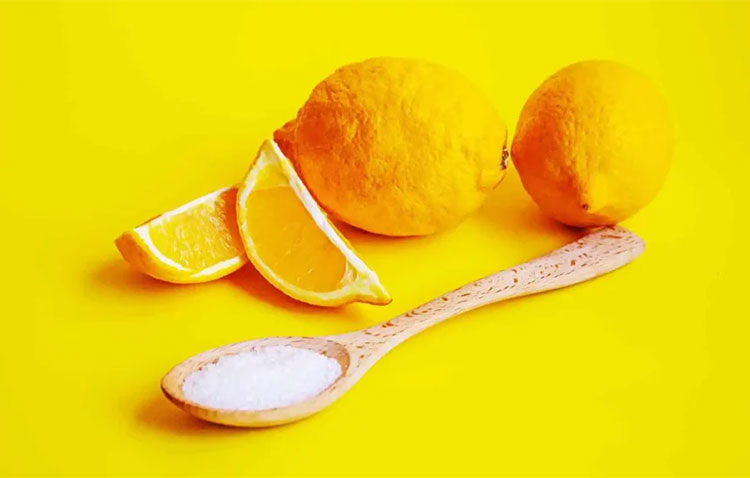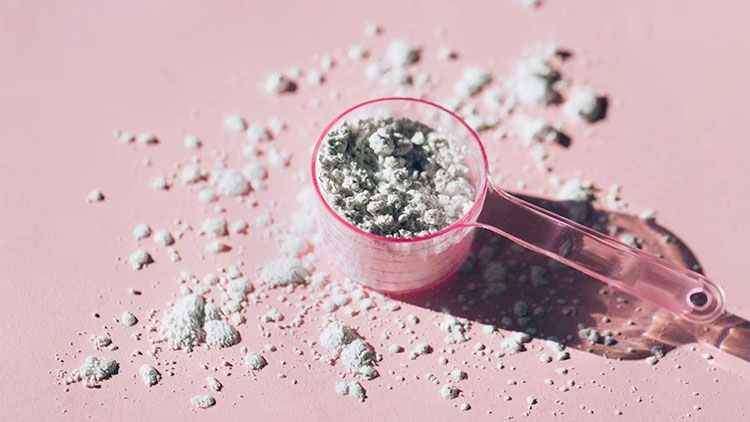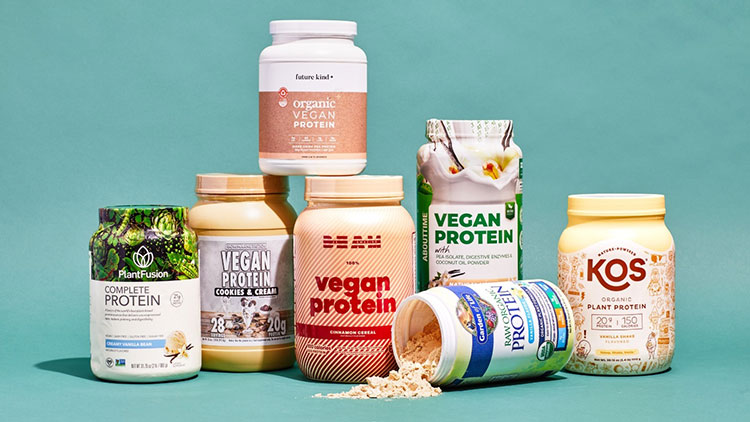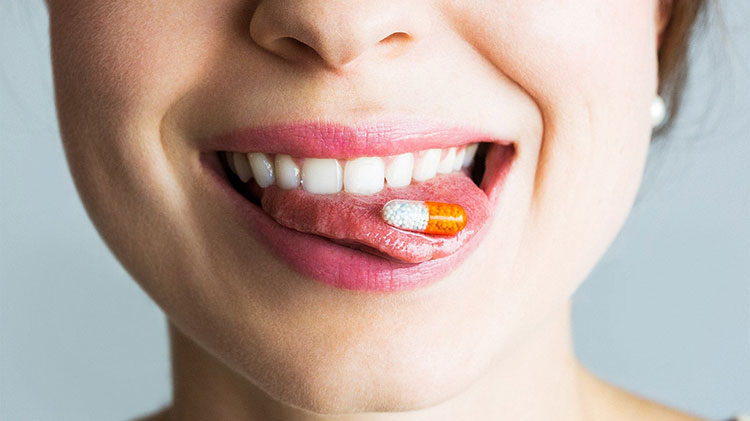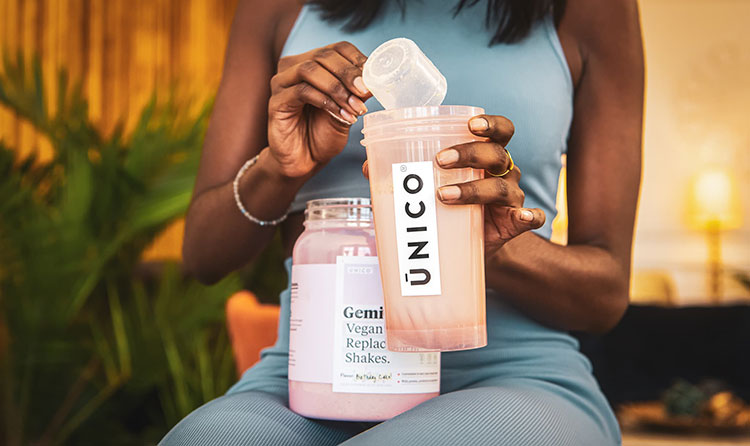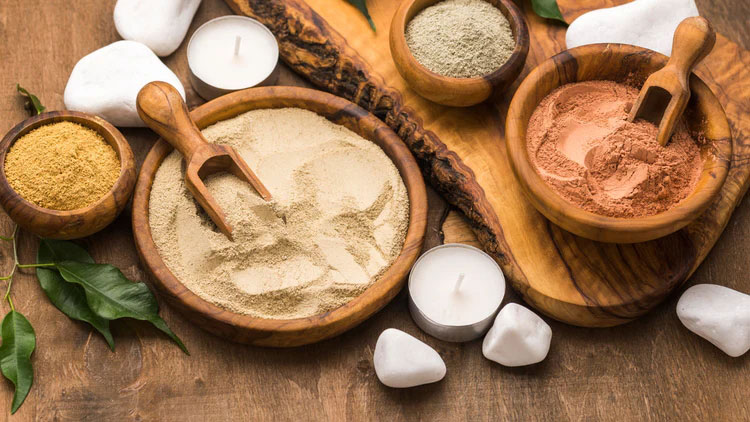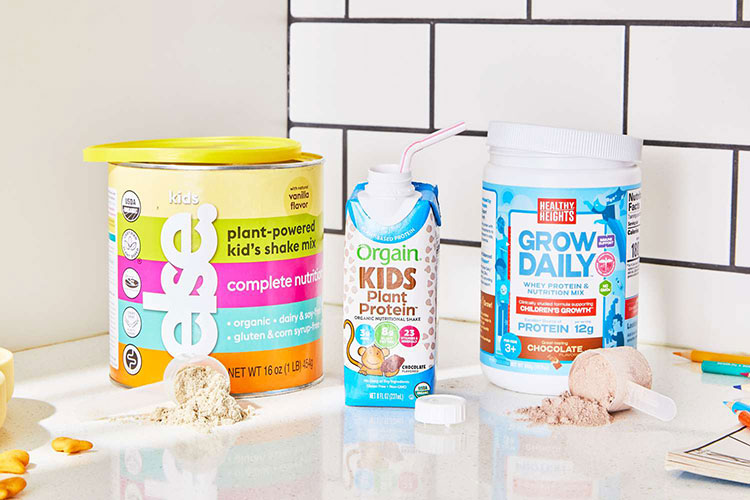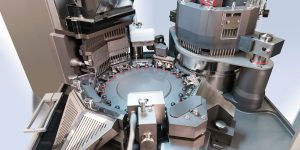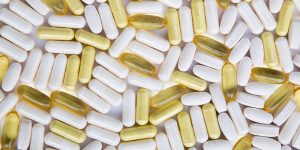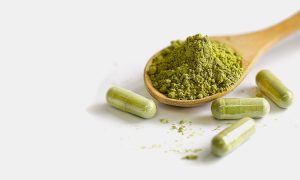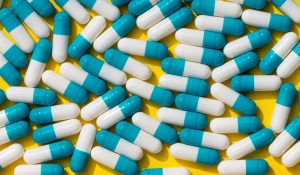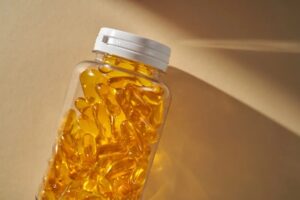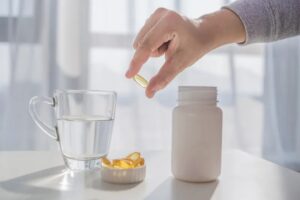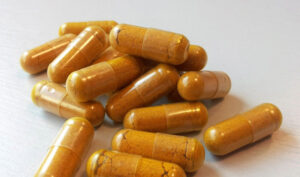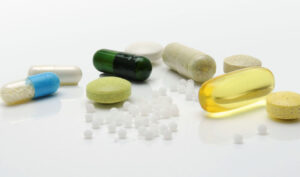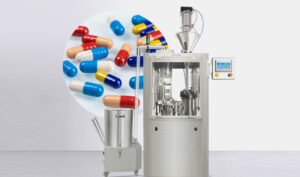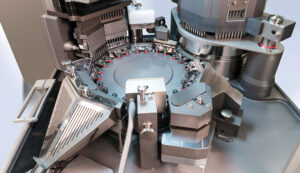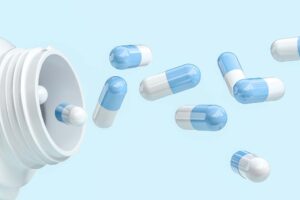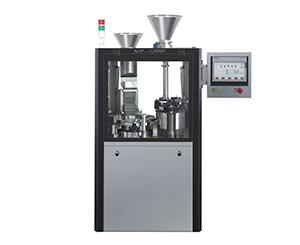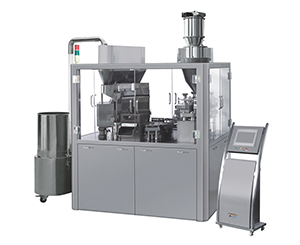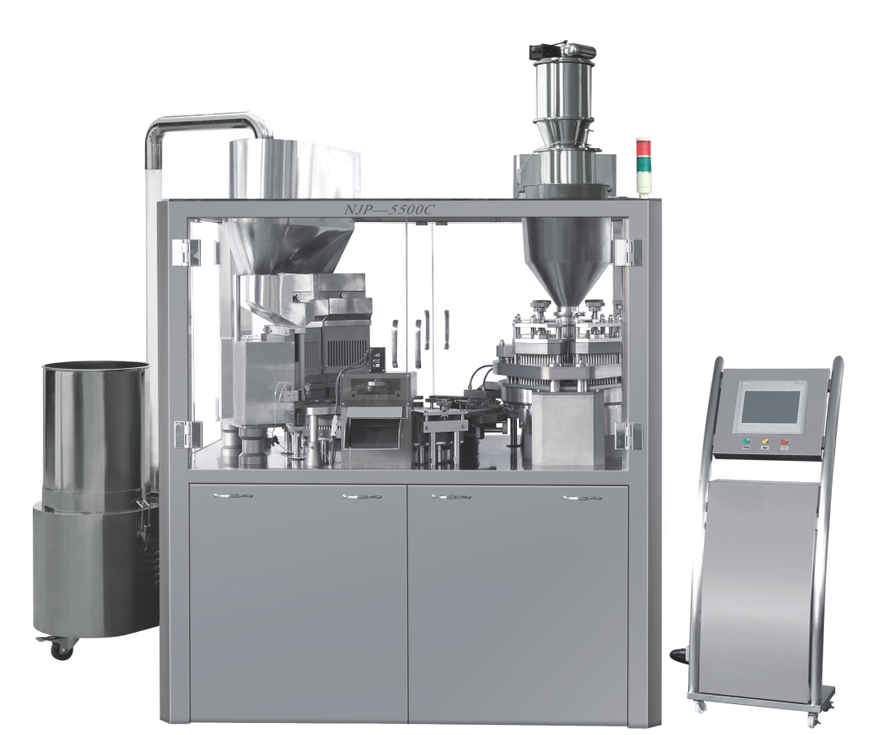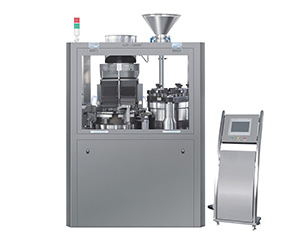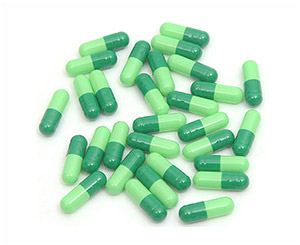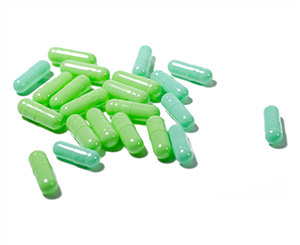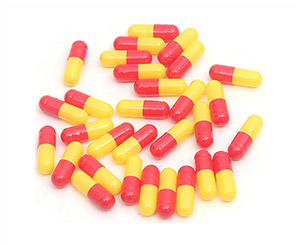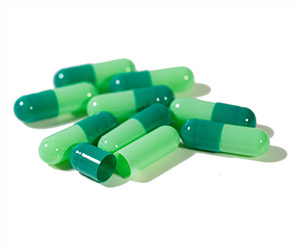Capsule Vs Powder: Which Is Better Supplement?
Are you a fitness seeker or a health-conscious individual? Do you want a nutritionally-packed supplement form for yourself? Does the choice between a capsule or powder supplement confuse you?
Nowadays, more and more people are opting for supplements. So, the argument “capsule vs powder: which is a better supplement?” is a hot topic among health-minded people. And they are always weighing the pros and cons of capsule and powder supplements. Both oral dosage forms are full of nutrients of all varieties. But the main question is which one is more compatible with your personal style of living, fitness aims, and budget-friendly?
In this blog post, we’ll delve deep into various facets of capsule and powder supplements and discover their absorption rate, dosage precision, convenience, and so much more. So, let’s delve deep into the fascinating and nutritious world of supplements powder and find out which supplement form is the right match for you!
1.What are Capsule Supplements?

Capsule Supplement- Picture Courtesy: MIMS
Capsule supplements are the type of oral dosage forms in which fill materials or supplement components are sealed inside an outer protective shell or coating- made from animal-based sources (gelatin) or plant-based substances (HPMC, carrageen). The capsule supplements are superior to other forms of supplements owing to their ability to accommodate components in different physical forms, for instance, powders, granules, pellets, liquids, and mini-tablets.
They are also well-liked by numerous individuals because of their attractive colors, printing varieties, and clean labels. They are formulated in different sizes- ranging from 000 to 5. There are two main classes of capsule capsules- hard gel and soft gel- depending upon their shell nature.
2.What are Powder Supplements?
Powder Supplement- Picture Courtesy: Life Extension
They are found in a finely grounded form, unlike tablets and capsules. They only constitute one ingredient or combination of ingredients without any fillers or excipients. Usually, powder supplements are created by drying and grinding different supplement components. They are habitually ingested by mixing them with drinks like juices or milk.
Powder supplements are easily added to your diet regime if you’re experiencing pill fatigue. Moreover, powder supplement comes in handy if you want to adjust your supplement intake.
3.Capsule Vs Powder: Which Is Better Supplement?
If you think that the plus points of popping capsules weigh far more than “pleasurable” options like powders, then you are in for a surprise! Because no supplement form is better than another. Instead, they are just diverse modes of treatment administration and are identical in their core composition.
Ultimately, the decision to take capsule supplements or powder supplements is influenced by a combination of individual partialities, lifestyle, and, health conditions. However, this choice could overwhelm you, so, we’re stating some factors to assist you in choosing between capsules and powder supplements.
Its Absorption Profile
These are the major factors that help in selecting between capsule and powder supplements as one's favorite regime. People often consider time for therapeutic relief when opting for capsules over powders or vice versa.
Capsules: Slower Absorption
Capsules: Slower Absorption- Picture Courtesy: YourCareEverywhere
Capsules are gaining traction as a mode of delivery. Why? Because they offer ease of ingestion, ease of digestion, and elevated absorption in contrast with tablets. Their gelatin shells are fabricated to disintegrate in approximately 20-30 minutes in the gastrointestinal tract, offering you all the health benefits of their encapsulated nutrients. However, normally capsule shell is dissolved depending upon their composition, for instance, gelation vs cellulose.
Furthermore, some capsules are developed for prolonged or extended-release; thus, they provide therapeutic effects for a longer period. It's also worth noting that its dissolution- eventually, its absorption or efficiency- may have some delays due to poor hydration, slow metabolism, or decreased stomach acid.
Powders: Faster Dissolution
Powders: Faster Dissolution
On the other hand, powder supplement offers faster absorption and immediate bioavailability. The reason? Well, the ingredients in powders are already available in their free form and no time is spent on breaking down their exterior layers- as the case with capsules and tablets- thus their supplement components are readily accessible for absorption by blood in the stomach.
Normally, their absorption starts immediately after they come in contact with the stomach environment; therefore, they are perfect for nutrients that require rapid absorption, for example, amino acids and electrolytes.
Considering the Composition
Although, it seems strange but composition (chemical properties) of capsule and powder also make one form of supplement fancied over another. Let’s look into the composition of capsules and powder and see how it influences the decision-making process.
Capsules: Shell and Encapsulated Ingredients
Capsules: Shell and Encapsulated Ingredients
Are you keen on learning about the composition of capsule supplements? They are comprised of two chief parts- shell and encapsulated contents. Shell can be thought of as a container or vessel for encapsulating ingredients and is manufactured from gelatin or plant-based options (hydroxypropyl methylcellulose (HPMC) or pullulan). Gelatin is procured from animals (bovine or porcine), subsequently, they are not well-liked by individuals on a Halal, kosher, or vegan diet.
Moreover, capsule supplements have fillers and binders along with active supplement components. These materials serve the purpose of maintaining formulation consistency and fill space. Some frequently used fillers are microcrystalline cellulose or magnesium stearate. Capsules are shunned by people with sensitive stomachs or allergies because fillers can irritate the stomach lining or start hypersensitivity reactions.
Powders: Contain Only Active Ingredients
Powders: Only Active Ingredients- Picture Courtesy: EatingWell
They are generally loose supplement preparations, prepared from active components and occasionally additives. It does not have any covering or coat and, therefore, is favored by numerous individuals.
Active ingredients in powders are macronutrients- protein, carbohydrates, or fats- and micronutrients- vitamins, minerals, and others. They contain additives or stabilizers like sweeteners, thickening agents, or anticaking agents only when needed. Usually, powder supplements are free of fillers and binders. Owing to their filler-free composition, powder supplements are the go-to for various fitness or health enthusiasts.
The Dose Consumption Profile
Dosage versatility and accuracy are the fundamental aspects that separate capsule and powder supplements. Let’s have an insight into the dosage of capsules and powder supplements:
Capsules: Precise Dosing
Capsule: Precise Dosing- Picture Courtesy: CapsCanada
Capsules are loaded with pre-measured and fixed doses of supplement nutrients. Hence, you can have dose consistency on every intake. Moreover, you can easily adhere to the recommended dose prescribed by a healthcare practitioner without needing a measuring spoon, scale, or, scoop.
Capsules are a preferable option for people, who need precise or standardized dosing. However, if you want to adjust your dose intake then a capsule is not a viable option as it involves ingesting additional capsules or breaking them in halves (if possible).
Powders: Customizable Dose
Powder: Customizable Dose- Picture Courtesy: The Conversation
Powders are a good bet for people, who require dose flexibility. Powders allow buyers to alter the dosage depending on their dietary requirements. It comes in handy for health seekers, taking large-dose supplements, for instance, protein powders, or who wish to slowly fine-tune their dosage ingestion.
Nevertheless, you should properly and carefully weigh your powder supplements, because otherwise you could overdose or underdose and take more or less than the required dose. This could lead to lower effectiveness or side effects.
Which one is more convenient?
In this fast-paced world, everyone is seeking a product with ease of use. This goes for both capsule and powder supplements too. Convenience plays a significant role in capsule supplement vs powder supplement decisions.
Capsule Wins Points for Convenience
Capsule Wins Points for Convenience- Picture Courtesy: Lonza
If you are a person, who is always on the go, a capsule supplement might be your first choice. Because it does not involve any nuisance of measuring the dose. You don’t need to worry about mixing or scooping ingredients because capsules are packed in pre-quantified form.
They are ready to use and do not require any preparation. Furthermore, you are not required to buy any additional equipment for portioning doses. Why they are convenient? They are simply downed with water, making them a hassle-free choice and easy to incorporate into daily schedules.
Powders Inovlve Preparation
Powders Need Preparation- Picture Courtesy: Self
Powders are not packed as individual dosages, making them a bother for people who are traveling or in a hurry. You will have to measure, mix, or even blend powder supplements in juices, water, milk, or feed. This needs extra time and instruments, for instance, a shaker, mixer, blender, measuring cup, or spoon.
It’s more of a hassle to measure every single dose precisely, which can be troublesome for patients with limited mobility. This can increase dosing errors. The added step in the daily timetable makes powder less likable to some.
Which is significantly portable?
This is a decisive point in the capsule vs. powder argument for those who travel regularly or carry supplements in their backpacks or handbags.
Capsules: Compact and Portable
Capsules: Compact and Portable- Picture Courtesy: Patco Pharmaceuticals
Capsules are formulated as small-sized and lightweight, meaning that they occupy less space, and are easily portable in their containers- blister or strip packs, bottles, pill organizers, or smallholders. You can easily take them with you on your daily commutes, hikes, walks, or gym sessions.
Also, capsules are TSA-compliant for air travel, consequently, you can easily carry them with you through security. They require no prep work and therefore, don’t create any mess or spill when compared with powders.
Powders: Less Portable
Powders- Picture Courtesy: Healthline
Powder supplements are synonymous with bulkiness. They are usually packed in large-sized jars, tubs, or pouches, which makes them difficult to transport. Single-serve sachets are manufactured by some brands, which while improving their movability leads to packaging waste.
They can be messy and wasteful to prepare, especially for those new to using them. Although you can increase their portability by transferring them to small containers, then you’ll have a high chance of contamination or inaccurate dosing. These supplements take more room because they come in bigger packing and require mixing stuff.
Application Goals
Capsule and powder supplements address diverse health and wellness goals. They have different physical forms and administration methods, hence, they serve different uses.
Capsules: Best for Specialized Nutrients
Capsules for Specialized Nutrients- Picture Courtesy: Healthline
They can encapsulate nutrients in small and precise dosages, which is why, multivitamins (B-complex), vitamin D, and minerals like iron, and zinc are delivered in capsules. Sensitive ingredients (probiotics or enzymes are administrated through the enteric-coated capsule to protect them from dissolution in the stomach, which ensures specialized ingredients are released and absorbed in the small intestine.
Capsules commonly support for long-term wellness and health of different organs and tissues, (heart, bone, and immune cells) by delivering key nutrients, for instance, omega-3 fatty acids, calcium, or, zinc to them.
Powders: Ideal for large-Dose Nutrients
Powders: Ideal for large-Dose Nutrients
Because powders make it easy to incorporate large doses of nutrients, therefore, they allow manufacturers to formulate protein supplements (whey, casein, collagen), electrolytes (sodium, potassium, and magnesium), and superfoods (spirulina, chlorella, or, other greens) for muscle recovery, hydration, and nutrient boost.
They are favored in fitness and wellness groups due to their customizability. They are quickly absorbed in blood circulation; hence, you can obtain an instantaneous energy boost with powder supplements. They are the perfect dosage form for pre-workout supplements, for example, creatine, beta-alanine, or caffeine. You can develop your tailored nutritional recipe by blending various supplement powders and accelerate your progress toward fitness goals.
Taste Profile
Taste can make or break people's experience with supplements. The same holds true for both capsule and powder supplements; their taste can encourage or discourage their long-term use.
Capsules: Taste-Neutral
Capsule: Taste-Neutral- Picture Courtesy: MedicalNewsToday
Are you curious about why capsule supplements lack taste? The supplement components of capsules are encased in a protective coat- manufactured from gelatin or vegan alternatives) that disguises their flavor and odor. So, capsules are suitable for filling ingredients with intense, bitter, uncharacteristic, or unpleasant flavors, for example, fish oil, herbal extracts, minerals, and vitamins.
Furthermore, capsules have no aftertaste unlike powders, as they are instantly ingested with water. However, some individuals may detect a mild taste of shell if it breaks down quickly in the mouth.
Powders: Customizable Taste
Powders: Customizable Taste- Picture Courtesy: Brova
Original powder supplements have an unappealing taste and feel gritty, subsequently, they are formulated in diverse flavors, for instance, chocolate, vanilla, orange, strawberry, or other tropical fruits. They provide a savory experience to individuals who enjoy different flavors. Furthermore, you can include appetizing powders in smoothies, juices, and shakes to enhance their palatability.
Yet, there are several kinds of supplement powders (amino acids, spirulina, green powders) with strong, earthy, or bitter tastes that are hard to conceal. This discourages numerous people from taking them on a routine basis. Also, some powders may have artificial, sugary, or overpowering tang, which means that you can’t use them in as many ways.
Physical Texture and Characteristic
Texture contributes to a more satisfying sensory experience of popping supplements. A smooth texture is easily tolerated by people with sensitivity issues or certain preferences. Here is how the texture of capsule and powder supplements impacts their use.
Capsule: Smooth with Uniform Texture
Capsules: Smooth Texture- Picture Courtesy: Wellington’s Nutrition
Capsules have a smooth texture, which allows you to easily swallow them with water or other beverages. Soft gels are quite easy to consume thanks to their soft or gel-like coating, as a result, they are a major hit among sensitive individuals.
In addition to their overall softness, you may have observed that the capsule coat has a uniform texture, limiting the gritty or clumpy feel that is characteristic of powders. But you have to quickly swallow capsules, otherwise, its outer shell may fragment and leave a sticky or squishy sensation in the mouth.
Powders: Mixable Texture
Powder: Mixable Texture- Picture Courtesy: Business Insider
Some powders have a gritty or sandpaper-like texture that feels disagreeable on the tongue, but you can modify their texture by mixing them or sprinkling them on foods (yogurt, oatmeal). Other types of powder have a natural grainy consistency even when they are fully mixed or blended.
If you don’t fully blend them in liquids, powder supplements are prone to leaving a chalky residue in the mouth or on mixing tools. Some powders look unappetizing. Really? A thick and sludgy texture may develop when some kinds of powders are blended with a small quantity of liquids.
Which one has more longer shelf life?
It significantly affects potency, safety, and storage needs; consequently, you should take shelf-life into account when deciding between capsules and powder supplements.
Capsules: Longer Shelf-life
Longer Shelf-life of Capsules- Picture Courtesy: Centrum
While it’s not always the case, capsule supplements generally last longer than powder supplements. Why is that? It is due to their sealed structural coat that safeguards inner active contents from harsh environmental agents, like moisture, oxygen, and, light. With their barrier-like behaviors, the capsule shell is pivotal in the stability of ingredients.
Moreover, capsule supplements are packed as single-dose units, limiting the chance of contamination, unlike powders. But you should properly store capsules to avoid damage by humidity and air.
Powders: Decreased Shelf-life
Powders: Decreased Shelf-life - Picture Courtesy: Bon Appetit
Do you know powder supplements are good for consumption for extended periods if they are placed in dry and cool pantries? It is because they are prepared with small amounts of stabilizers or preservatives to lengthen their expiry period. However, it should be kept in mind that powders have a shorter consumable life than capsule supplements.
It is a fact that some powders are usually hygroscopic and absorb condensation from the air, which causes caking or clumping. In addition, if their storage vessel is left open, powders might oxidize, consequently becoming less effective.
You would have noticed a loss of flavoring of powders and a change in their texture after some time. Hence, it is important to limit the frequent opening of their jars or bottles because it can subject them to impurities or contaminants like bacteria, dust, and moisture.
Suitability for different age groups
Age, swallowing ability, and lifestyle are major elements in determining acceptance of capsule and powder supplements in individuals of different ages. Let’s explore their suitability among diverse age groups.
Capsules: An Adult-Friendly Option
Capsules: An Adult-Friendly Option- Picture Courtesy: Healthline
Even though capsule supplements are well-liked by individuals for their precision and manageability, however, doctors do not recommend them for infants and toddlers, as they cannot swallow capsules. You can give capsule supplements of size 5 to older children with ages 4-12. Capsule supplements are an adult-friendly option because of their ease of use.
Older patients typically find it difficult to swallow larger capsules, so they are prescribed smaller capsules or soft gel for heart and bone health.
Powders: Suitable for All Age Groups
Powder: Suitable for All Age Groups- Picture Courtesy: Unico Nutrition
Unlike capsules, powder supplements are easily administered to every individual regardless of age. Yes, you can easily give powder supplements to infants and toddlers by mixing them in their drinks, smoothies, and pureed food. Teens and adults- especially athletes, fitness lovers, yoga practitioners, or bodybuilders- find them handy for fitness and wellbeing benefits.
Which is more cost effective?
The price of supplements is not decided by one element but by a combination of several factors, for example, ingredients, manufacturing method, packaging size, etc.
Capsules: Higher Per-Dose Cost
Capsules: Higher Per-Dose Cost
How capsules are wallet-friendly? Well, they are sold in small-sized packaging having about 10, 60, or 90-day doses, which makes them more reasonably priced. Capsule supplement has less chance of wastage. Because you buy them pre-calculated doses and they have longer shelf-life, which translates to better value for your money.
It should be noted that when capsule cost per serving is calculated, it is found that capsules are pricier than powders, due to extra preparation steps, such as encapsulation and packaging.
Powders: Inexpensive for Bulk Purchases
Powders: Inexpensive for Bulk Purchases
Powders are considered a more economical option, as they are normally bought in bulk quantities. They are much cheaper choices for consumers and manufacturers due to negligeable packaging materials and simple processing and packaging, respectively.
Nevertheless, bulk powder pouches or jars may come at a higher upfront price than small capsule bottles. Some people believe powder supplements are a more expensive option owing to their probable spoilage, caking, or contamination. Besides these disadvantages, powders need mixing or scooping accessories, which increases the overall expense of using powders.
Which formulation is Environmental friendly?
In recent times, consumers have been looking for sustainable supplement options. The environmental impact of nutritional dosage forms is estimated by taking into account their manufacturing process, packaging size, shipment, and disposal. Let's find out about the environmental impact of capsule and powder supplements.
Capsules
Capsule: Lower Chance of Wastage- Picture Courtesy: Channel Key
Their individual packaging implies minimal storage space, so, capsules contribute to reduced transportation-related fuel combustion than powders. Manufacturing of capsules is not regarded as eco-friendly. Why? Because it involves additional stages of encapsulation, demanding higher energy inputs and more resources. Furthermore, Gelatin capsules are formed from animal byproducts, which increases environmental and ethical concerns, while plant-based capsules may constitute exhaustive farming approaches.
The blister packs or plastic bottles of capsule supplements are difficult to recycle, which adds to more plastic pollution.
Powders
Powders: Reduce Packaging Waste- Picture Courtesy: Parents
Yes, you can save packaging materials by wrapping powder supplements in bulk. Their containers are larger in size, reducing waste quantity when compared with singly-packed capsules. Moreover, their production consumes less energy than powders and has a lower environmental impact because of fewer processing steps.
Bulk powders are also a sustainable option because their bulk packaging means fewer shipments and minimal carbon emissions.
Conclusion
After learning about the merits and demerits of each supplement form, which one will be your top pick- capsules or powders? The answer lies within yourself. Go for capsule supplements if you’re a fan of portability, convenience, hassle-free preparation, mess-free consumption, and accurate dosing that comes with capsules. But if you want a personal touch in your supplement consumption, save money, or love experimenting with flavors or texture, then powder supplements would be in harmony with your personal lifestyle. In short, the debate “Capsule Vs Powder: Which Is Better Supplement?” is only resolved by considering your health needs and lifestyle choices. If you still have any query, then please contact AIPAK team right now to get the best possible solution.
Don't forget to share this post!
Capsule Filling Machine Related Posts
Capsule Filling Machine Related Products
Capsule Filling Machine Related Videos
CONTACT US
Tell us your raw material and project budget to get quotations within 24 hours.
WhatsApp Us: +86 181 6426 8586

Want the best price & newest pharmaceutical machinery buying guide,tips and trends sent straightly to your box?Sign up for AIPAK’s monthly newsletter,we’re free for your consultation and Offer you the most suitable solutions!
The Buyer's Guide
- Capsule Filling Buyer's Guide
- Blister Packaging Buyer's Guide
- Tablet Counting Buyer's Guide
- Tube Filling Buyer's Guide
- Cartoning Buyer's Guide
- Gummy Making Buyer's Guide
- CO2 Extraction Buyer's Guide
- Empty Capsules Buyer's Guide
- Suppository Filling Buyer's Guide
- Tablet Coating Buyer's Guide
- Tablet Press Buyer's Guide
- Softgel Encapsulation Buyer's Guide
Most Popular
- 7 Importance Of Pharmaceutical Packaging In Different Applications You Must Know
- 6 Advantages You Must Know About Tablet Counting Machine
- 8 Advantages of Blister Packaging You Must Know
- 6 Critical Applications of Automatic Capsule Filling Machine
- 6 Stations You must Know to Improve the Filling Quality of Automatic Capsule Filling Machine
